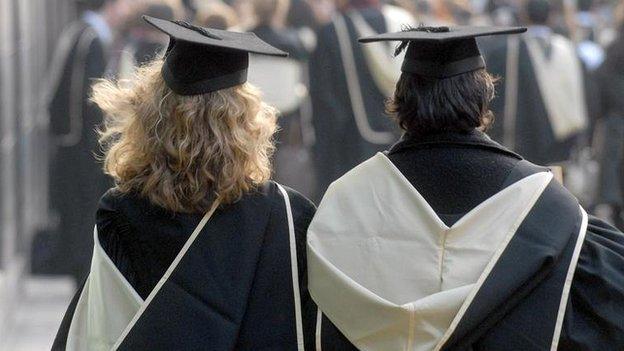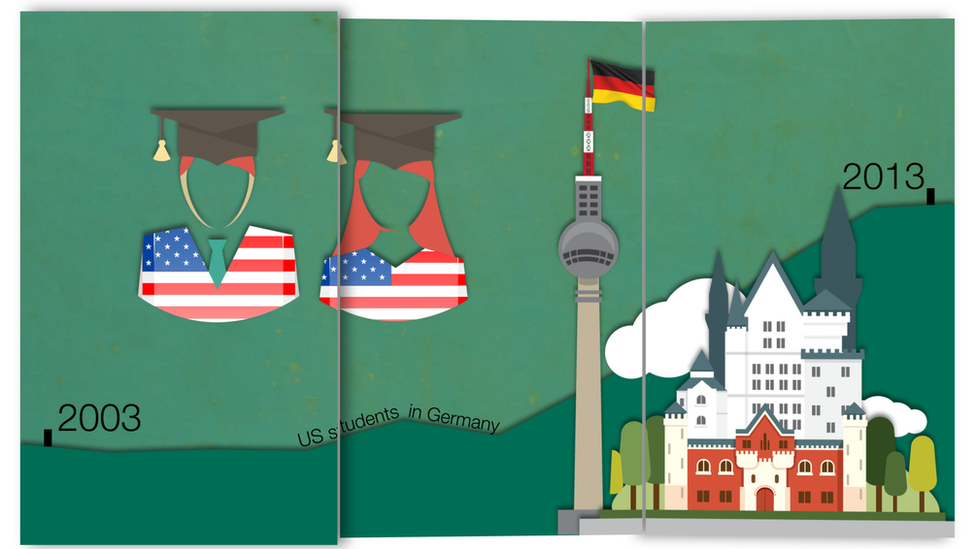Students doubt fees value for money
- Published

Students wanted more information about how their tuition fees were being spent
Many students are unconvinced they have received value for money from their university courses, according to an annual survey.
And a large majority do not think they have been given enough information about how tuition fees are spent.
The survey suggests students average 12 hours per week "contact" time, when they are taught by staff.
The findings are part of a survey of 15,000 students in the UK, carried out by higher education think tanks.
The Student Academic Experience Survey, carried out by the Higher Education Policy Institute and the Higher Education Academy, examines levels of consumer satisfaction among undergraduate students.
Information gap
The survey suggests 59% of students are "fairly satisfied" with their course - and a further 28% are "very satisfied".
But, with "the benefit of hindsight", more than a third said they would have chosen a different course. That represents about half a million students with regrets about their choice, say the researchers.
Less than half of the students believed they had had good or very good value for money from their courses - but there were big differences between the students in England and Scotland.
Only 7% of the students in England, where tuition fees are up to £9,000 per year, said they had received "very good" value, compared with 35% in Scotland, where there no tuition fees.
The survey found a widespread view the students were not being told enough about how tuition fees were being spent - with three-quarters saying the information was insufficient.
Nick Hillman, director of the Higher Education Policy Institute, said this information gap was one of the most striking findings of the survey and that universities would have to respond.
"If it doesn't happen soon, it could be forced on universities by policymakers," he said.
Contact hours
The survey examined students' hours when they were taught by staff. There was an average of 12 hours "contact time" across all subjects, but some arts and humanities courses had eight hours per week.
Across all subjects, an average of three hours per week were spent in classes of 15 students or less, with the rest of students' classes being taught in larger groups.
"Course quality depends on more than contact hours and class size, but students do care deeply about these issues. They are notably less satisfied when they have fewer than 10 contact hours and classes of over 50 students," said Mr Hillman.
For many subjects, a majority of students' course time is "independent study", where students are expected to work on projects alone.
Stephanie Marshall, chief executive at the Higher Education Academy, said the study showed "high levels of overall student satisfaction".
But she also highlighted that it showed "the relatively high numbers who do not feel supported in independent study".
She said that "providing guidance and structure outside timetabled sessions is key here".
Students were also asked where any cuts in spending should fall.
The most popular options for cuts were to spend less on sports facilities and new buildings, while the areas where students wanted the least cuts were hours of teaching and learning facilities.
"This survey confirms that there is a clear link between higher education funding systems and student perceptions about value for money," said Pam Tatlow, chief executive of the Million+ group of universities.
- Published3 June 2015

- Published3 February 2015
- Published14 January 2015